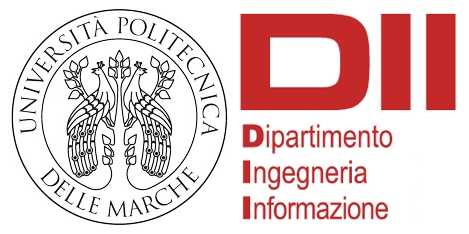Project details
Title:
MEtodologie didattiche Inclusive ed Intelligenza Artificiale
Acronym:
MEraviglIA
Type:
Regional
Start Date:
May 26, 2025
End Date:
May 31, 2028
Principal Investigator:
Prof. Domenico Ursino
Other Units Involved:
Università di Camerino, Università di Macerata, Università di Urbino, IIS “A Cecchi” (Pesaro), ITT “Montani” (Fermo), IIS “Marconi Pieralisi” (Jesi), IIS “Fermi Sacconi” CPIA (Ascoli), IPSIA “F. Corridoni” (Corridonia), ITE “A. Gentili” (Macerata), IIS “Corinaldesi Padovano” (Senigallia), Liceo Artistico Statale “Preziotti – Licini” (Fermo e Porto San Giorgio), IIS “Cambi-Serrani” (Falconara), IC “S. Agostino” (Montecosaro), IC “Don Giussani” (Monticelli), IIS “Merloni – Miliani” (Fabriano), ITIS “E. Divini” (San Severino), IIS “Raffaello” (Urbino), Liceo “Nolfi Apolloni” (Fano)
Keywords:
Intelligenza Artificiale, Metodologie Didattiche Inclusive, Pedagogia
Description:
The MEraviglIA project – ‘Inclusive Teaching Methods and Artificial Intelligence’ was created with the aim of developing a ‘Marche Model for Artificial Intelligence in Education’ designed based on the specific characteristics and educational needs of schools in the Marche region, but also based on solid human, ethical, educational, and pedagogical principles. The model will provide guidelines for schools towards the progressive integration of artificial intelligence in teaching, adopting inclusive teaching strategies aimed at promoting the personalization of the learning path. This is in response to the growing need for the school system to focus its educational programming on the topic and with the tools of Artificial Intelligence, while also paying attention to and monitoring crucial issues of ethics, social impact, and diversity. This is also why the MEraviglIA project always focuses on the most appropriate teaching methods in response to the artificial intelligence technologies and strategies used.
Objectives:
OR1 – Build a knowledge base to support trainers, guiding training scenarios according to the “Marche Model for Artificial Intelligence in Education” developed on the basis of the specific needs of schools, in order to promote inclusive and innovative teaching.
OR2 – Identify, design, and develop customized training interventions, selectable based on trainer profiles, in order to create teaching units aimed at acquiring specialized skills.
OR3 – Test training interventions with students through innovative educational workshops for inclusion, adopting a practical approach that facilitates the acquisition of skills in a concrete and applicable way.
OR4 – Promote the full integration of the “Marche Model for Artificial Intelligence in Education” in schools so as to make it a driving force for an inclusive school system and, therefore, a more aware society, where families play a central role.
Application Contexts:
The MEraviglIA project – ‘Inclusive Teaching Methods and Artificial Intelligence’ was created with the aim of developing a ‘Marche Model for Artificial Intelligence in Education’ designed based on the specific characteristics and educational needs of schools in the Marche region, but also based on solid human, ethical, educational, and pedagogical principles. The model will provide guidelines for schools towards the progressive integration of artificial intelligence in teaching, adopting inclusive teaching strategies aimed at promoting the personalization of the learning path. This is in response to the growing need for the school system to focus its educational programming on the topic and with the tools of Artificial Intelligence, while also paying attention to and monitoring crucial issues of ethics, social impact, and diversity. This is also why the MEraviglIA project always focuses on the most appropriate teaching methods in response to the artificial intelligence technologies and strategies used.
Expected Results:
– Number of schools involved: 15, of which 7 have confirmed their participation in the Temporary Association of Purpose and 8 have expressed interest.
– Number of teachers trained: 181 (all teachers nominated by schools in the ATS).
– Number of teachers involved in the trial and implementation: 285 (of which 181 teachers from schools in the ATS and 104 teachers from schools that have expressed interest).
– Percentage of trained teachers involved in the trial and implementation: 152% (all teachers from schools in the ATS and teachers from schools that have expressed interest; the latter will be trained during the trial and implementation phase).
– Number of original teaching materials and tools developed: 15.
– Students involved: 13,879 male and female students.
– Students at risk of educational poverty: 1,592 male and female students, equal to 11.47%.
